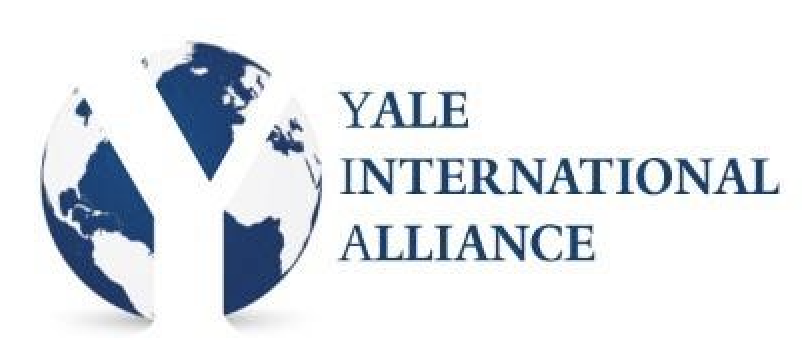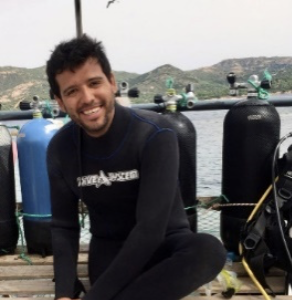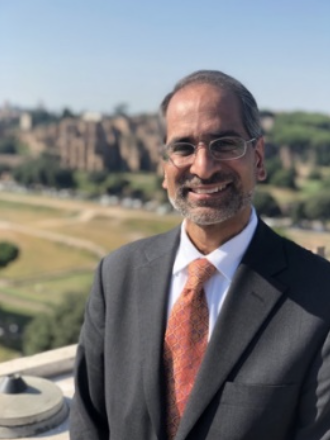The Blue Economy: The Missing Link to Sustainable Development // Webinar // Th. 2/4 @ 12:30pm ET
Co-Sponsored by:

In 2012, at a United Nations meeting on the high seas (i.e., Areas Beyond National Jurisdictions or ABNJ), the former president of Costa Rica, Honorable Jose María Figueres conveyed the message that the ocean remained the “last development frontier.” During this time, building on the consensus secured during the Rio+20 conference, Small Island Developing States (SIDS) unified their voices to develop a Sustainable Development Goal dedicated to the ocean and in support of their ‘blue economies’ (SDG 14).
Even though coastal and marine resources have always played a critical role in the global economy, these largely remained on the periphery of development interventions and in people’s minds. The ocean economy was thus a missing piece of the puzzle of sustainable development, including in the fight against climate change. SDG 14 on oceans and life underwater ignited a global movement for the sustainable management and use of ocean resources including for economic prosperity (i.e., blue economy).
The work continues however, as too often factors such as institutional and academic siloes, lack of political will, elite capture and a misalignment of incentives have led to serious gaps between science, policy, and integration across all SDGs. As the world learns from the challenges posed by the COVID-19 pandemic, a blue economy approach demonstrating the interlinkages between ecosystems, climate and livelihoods become an important piece of sustainable development to prepare for and mitigate crises in the future.
This webinar will further explore these linkages and will aim to provide the audience with an overall framework to engage solutions across environments, sectors, and economies.

Jorge Barbosa ’13 MESC, Blue Economy Specialist at the World Bank (Moderator)
As a refugee of conflict forcefully displaced from Colombia in the 1990s and becoming naturalized in the U.S., Jorge is empowered and motivated to work towards the sustainable management and use of our ocean resources. Jorge is a marine scientist with a decade of professional experience in program management, investment and policy on sustainable development issues related to our ocean and its linkages with climate change. Jorge continues dedicating his career to the ocean as a Blue Economy Specialist at the World Bank. Jorge is equally passionate about youth’s role in shaping the solutions that will contribute to the achievement of the SDGs and towards forging a prosperous future.

Dr. Pawan G. Patil, Senior Economist at the World Bank (Keynote)
Pawan G. Patil, PhD is a development banker, Harvard, Oxford, and London School of Economics trained economist and serial social entrepreneur. Over 20 years at the World Bank since joining as a Young Professional, he has followed his twin passions, co-developing the institution’s multi-billion-dollar portfolio on oceans, fisheries and the Blue Economy, and co-creating social enterprises and initiatives in support of adolescent girls and young people. His work has been featured in dozens of peer reviewed journals and newspapers, including The Economist, Financial Times, New York Times, Huffington Post, and Nature.
Dr. Patil is the recipient of several awards focused on innovation in development. He was named a “Girl Hero” for his role in conceptualizing Nike Foundation and the Girl Effect, a “Young Global Leader” by the World Economic Forum and was a cofounding curator of the Global Shapers Community of WEF and the World Bank Group’s Youth2Youth Community for which he was awarded a Webby, and Mobile Movement, a MacArthur Foundation Innovation in Learning recipient. Pawan currently lives in the Washington DC area with his wife of over twenty-two years and their two children.

Timila Dhakhwa ’16 MEM, Climate Change Specialist at the World Bank
Timila Dhakhwa is a Climate Change Specialist at the World Bank Group where she specializes in the design and implementation of fiscal and market-based policies (Emissions Trading Schemes, carbon tax, crediting mechanisms) for GHG emission mitigation. Timila works with countries to build their readiness to design and deploy carbon pricing policies to cost-effectively meet their climate targets. Timila is interested in the intersection of equitable climate policy, finance and the role of women in advancing economy-wide decarbonization solutions.

Lisbet Kugler ’01 MESc, Senior Environmental Specialist at the World Bank
With over 10 years of experience working in sustainable development, Lisbet strongly believes that the contributions of the private sector are essential in efforts to alleviate poverty around the world. For this to be successful, sustainability must be a critical component, not only for helping companies reach their long-term business goals and boost their brand value, but also to understand and manage the environmental and social impacts of their operations on local communities and the environment. With an extensive background in environmental science and environmental engineering and while working for the International Finance Corporation (IFC), Lisbet has undertaken detailed reviews of company operations and sometimes also their supply chains to evaluate environmental (energy and water consumption, waste and wastewater generation, air emissions, hazardous materials, and impacts on biodiversity/deforestation), health (occupational health and food safety), safety (life and fire safety, and emergency preparedness), and social (labor and working conditions, and community interactions) impacts.
With a focus on sustainability, Lisbet develops approaches and provide solutions that are pragmatic and anchored within the very real operational constraints of the company, while also keeping in mind some of the external, emerging market dynamics that come into play. The focus of Lisbet’s work has spanned a range of industry sectors around the world, with a primary focus on Africa and Latin America including fragile and post-conflict states. Lisbet recently joined the World Bank to gain exposure to working in the public sector and influencing the shaping of policy, with a particular interest in ocean plastics.

Dr. Gabriel Reygondeau, Ocean Scientist at the University of British Columbia, former Yale Post-Doc
Dr. Reygondeau’s research addresses the key challenges in developing theoretical and empirical understanding of global marine ecosystem’s biological and environmental characteristics, functions and services in a context of global climate change and other human stressors. The ultimate goal is to provide optimal information for effective ecosystem-based management under increasing anthropogenic pressures. Specifically, his research activities have focused on (1) identifying and tracking the spatial distribution of marine organisms, communities and ecosystems at a global and regional scales using several statistical tools; (2) analyzing how climate change, ocean acidification and other natural and human induced perturbations impact all oceanic compartment using synthetic indices; (3) exploring how the modification in ocean services will impact human society and (4) communicating research findings to the society to help develop shared-views of our future oceans and their management. Outcomes from my long-term research interests are designed to better understand biological systems using macroecological tools to improve effectiveness in meeting a portfolio of ecological and socio-economic goals for managing marine ecosystems and conserving biodiversity.

Safiya Sawney, Caribbean Policy Lead at Oceans Unite
Safiya is the senior technical advisor on Oceans and Climate for the Mission of the Republic of Palau to the United Nations. Safiya is the sous Sherpa to the President of Palau on the High Level Panel of the Sustainable Ocean Economy, the technical advisor to Palau as co-facilitator of the UN Oceans Conference and the 2020 Our Oceans conference and led the development of the Renewable Energy Transition Deliverable for SIDS working with IRENA and the SIDS Lighthouses Initiative. Safiya is also responsible for Caribbean engagement on Oceans for Ocean Unite. She advises the Island Resilience Partnership Initiative that focuses on implementation of SDGs to target enhancing climate resilience in islands via public- private partnerships and Renewable Energy Transition. Safiya is a former advisor to the Government of Grenada on Oceans, Climate and the Blue Economy and Parley for the Oceans and Small islands.
